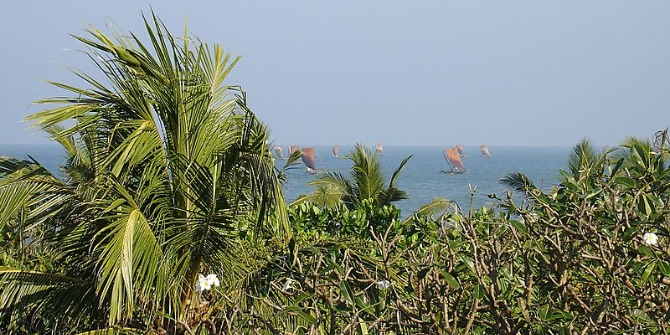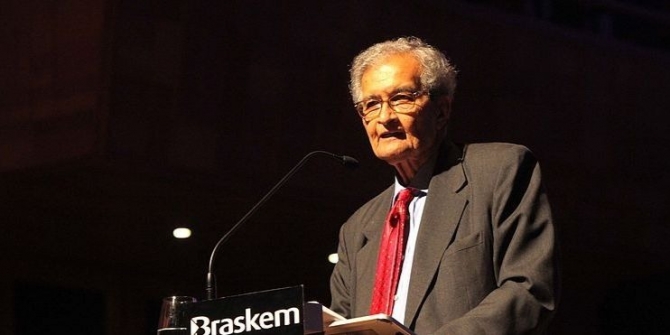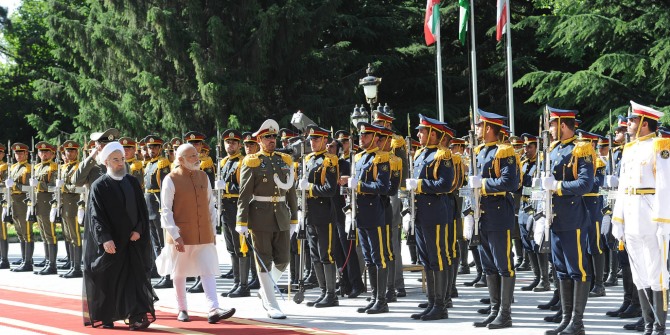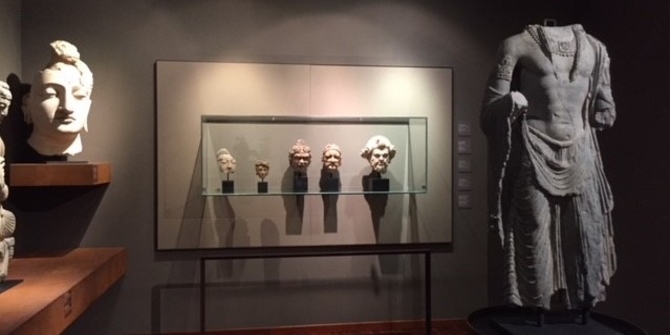 With the opposition leader behind bars and a string of allegations of human rights abuses over the last few years, Bangladesh goes to the polls on 30th December 2018. Despite the opposition participating in this year’s election after boycotting in 2014, M Mizanur Rahman argues why the chance of a free and fair election in Bangladesh this December remains low.
With the opposition leader behind bars and a string of allegations of human rights abuses over the last few years, Bangladesh goes to the polls on 30th December 2018. Despite the opposition participating in this year’s election after boycotting in 2014, M Mizanur Rahman argues why the chance of a free and fair election in Bangladesh this December remains low.
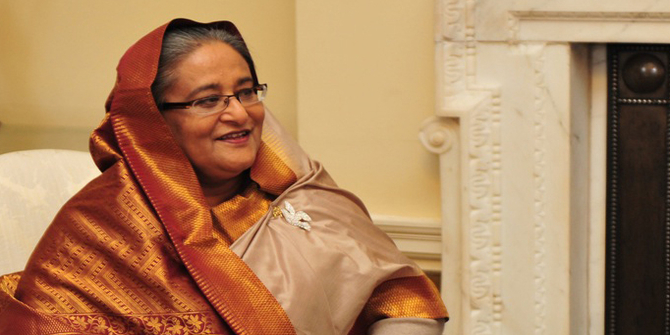 The Prime Minister of Bangladesh, Sheikh Hasina | Credit: Flicker, Creative Commons
The Prime Minister of Bangladesh, Sheikh Hasina | Credit: Flicker, Creative Commons
For the first time in its history, Bangladesh is heading to a national election with the head of a major political party in prison. Despite much disagreement, each political party, primarily divided into two major alliances, will take part in the country’s eleventh national election on 30th December 2018. But will Bangladesh see a free and fair election at the end of a parliamentary term which has been plagued by allegations of human rights abuses, forced disappearances and the imprisonment of opponents?
The Awami League and a history of allegations of electoral irregularities
Except for few sub-national elections, almost every election held under the Awami League government has been marred with allegations of widespread irregularities, such as ‘capturing’ polling centres, terrifying voters and casting fake votes. In 2014, with the demand of re-establishing the caretaker government, the BNP with its allies, boycotted the country’s tenth national election. The Awami League won the election despite 153 out of 300 parliamentary seats going uncontested. Non-governmental human rights and election monitoring agencies suggested that less than 10 percent went to voting centres; the remaining 90 percent either abstained from voting or chose not to case their ballot.
Recently, the BNP along with some other minor parties formed an alliance named Jatiya Oikya Front (National Unity Front), deciding to participate in this year’s election. With the Opposition Leader Khaleda Zia imprisoned, and her son the party’s Senior Vice-Chairman Tarique Rahman living in exile, many were concerned that without any effective leadership of Zia or her son, the BNP would collapse. But by strategically forming an alliance with prominent civil society members, it has been able to create a unified force against the government.
Lack of independence of the Election Commission and ensuing violence
The fairness of this year’s general election will be questioned by the government’s inability to strengthen the Election Commission (EC). The current EC has been highly controversial for its one-sidedness and has failed to act independently in several respects. Amidst accusations of severe disparities in the opportunity for all election campaigns to act freely, as well as repeated attacks on the opposition candidates, including senior and central leaders, the Chief Election Commissioner has claimed that his commission has been able to create a level playing field for the election. Shortly after this statement, election commissioner Mahabub Talukder told the press that this claim is ‘meaningless jargon’ and that there is no level playing field existing currently. Many news reports have shown that the EC has been openly one-sided and could not take any effective action for making the election free from political pressure from the ruling party. A leading newspaper in Bangladesh has called the EC stone deaf and hopelessly blind. Delegations from the opposition alliance have sent a number of letters and conferred several meetings demanding action to stop attacks on the opposition, but no visible action has yet been taken.
The leader of the Jatiya Oikya Front, renowned jurist Kamal Hossain and the Secretary-General of BNP Mirza Fakhrul Islam Alamgir, have recently been attacked by Awami League activists. Indeed BNP Joint Secretary General Mahbub Uddin Khokon was shot by police during his election campaign in December. This threat of violence has meant that many opposition candidates have not run their election campaign. Within a week of candidate nominations for this election, the BNP claimed that 150 of their candidates have been attacked by police and the student wing of the Awami League.
The government is using this law enforcing agency to crackdown on opposition candidates. Indeed many politicised senior officials in the civil administration and police services are actively working in support with the government, a clear violation of the electoral code of conduct. The Jatiya Oikya Front has handed over a list of 92 such officials to the EC requesting an immediate withdrawal of them. The EC has remained unmoved.
Environment of terror
An environment of terror now rules in Bangladesh politics, especially among opposition supporters. Many are scared of campaigning, attending processions and rallies. In the last few sub-national elections, the BNP even struggled to find the polling agents as previous polling agents had been arrested and harassed following their participation.
Forced disappearances and extra-judicial killings are perhaps the worst element of contemporary politics in Bangladesh that have exponentially increased during the last ten years. Security forces, according to Human Rights Watch, have a long history of impunity for serious violations including arbitrary arrests, torture, enforced disappearances, and extrajudicial killings. Odhikar, a Dhaka based think tank also reports a total of 456 extrajudicial killings, 83 forced disappearance and 64 deaths in jail from January to November of 2018 alone. The majority of those victims are opposition leaders or supporters. During this period, Odhikar reports, that there were 72 attacks on journalists, 79 killings and 3,826 injuries due to political violence.
Freedom of the press
The ruling government has also restricted freedom of expression by controlling the press. Free and fair journalism has been has seriously challenged in recent years, the most recent example being the arrest of prominent photojournalist Shahidul Alam. Bangladesh’s controversial Information Communications Technology Act has been one of the main tools used against journalists and citizens. Journalists and activists have been arrested without warrants, prosecuted and subsequently jailed using the law. The ICT Act has also got been used against non-political movements, such as the ‘quota-free movement’ and ‘road safety movement’.
This all means that Bangladesh is set for an election where the ruling party will continue to benefit and utilise the state apparatus to remain in power for the next five years. The prospect of free and fair elections under these circumstances is extremely unlikely. Perhaps two terms of the Awami League, a collapse in the banking sector and a government intent on politicising the security services will turn voters off, however with a long-term anti-democratic climate, the most likely result will be another pseudo-democratic regime.
This article gives the views of the author, and not the position of the South Asia @ LSE blog, nor of the London School of Economics. Please read our comments policy before posting.
 M Mizanur Rahman is a PhD Candidate at the Australian National University (ANU) and an international development professional. He tweets @M_Mizan_Rahman
M Mizanur Rahman is a PhD Candidate at the Australian National University (ANU) and an international development professional. He tweets @M_Mizan_Rahman



